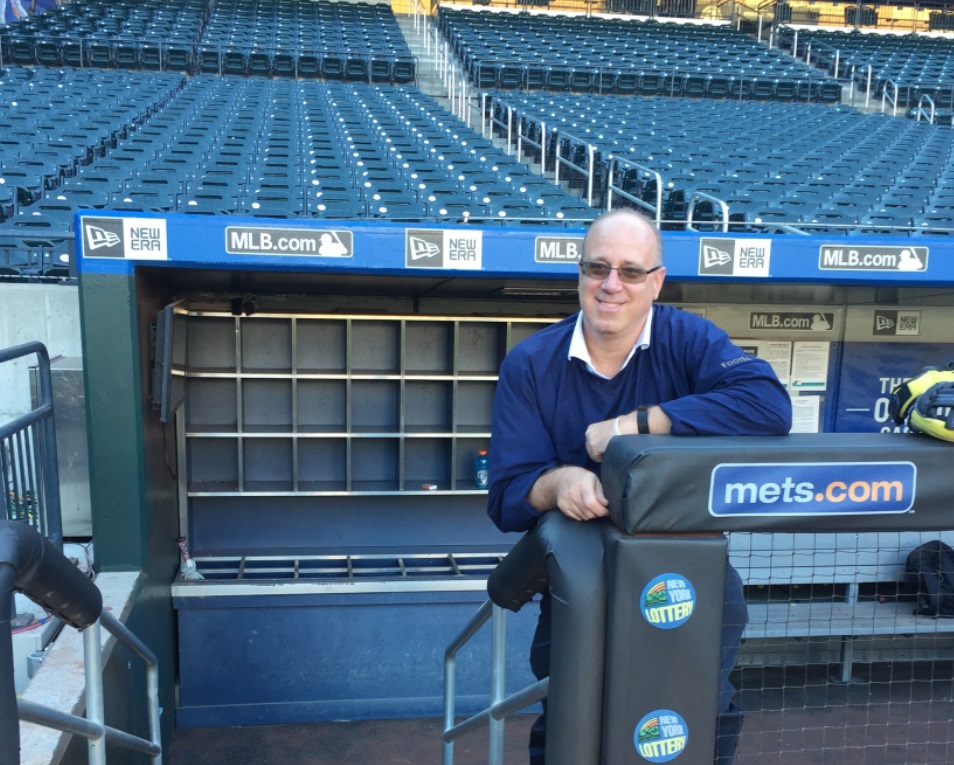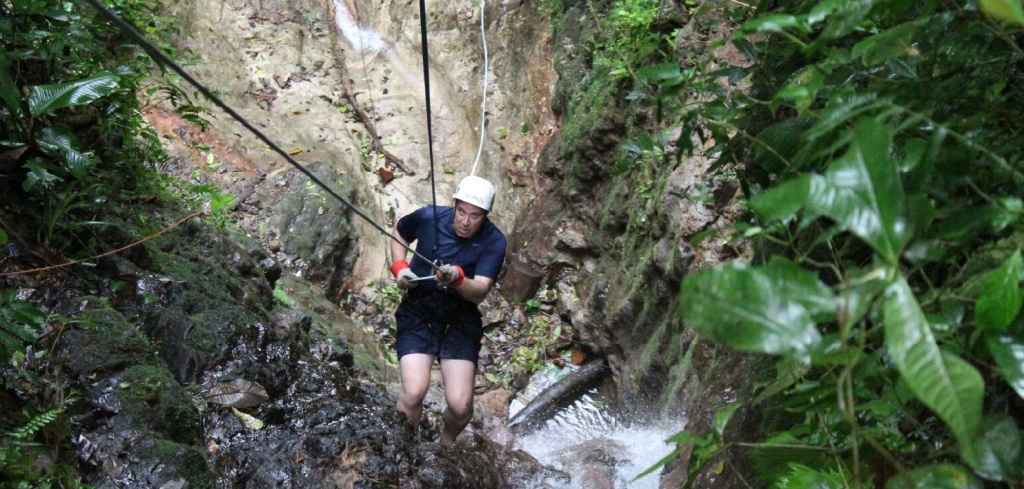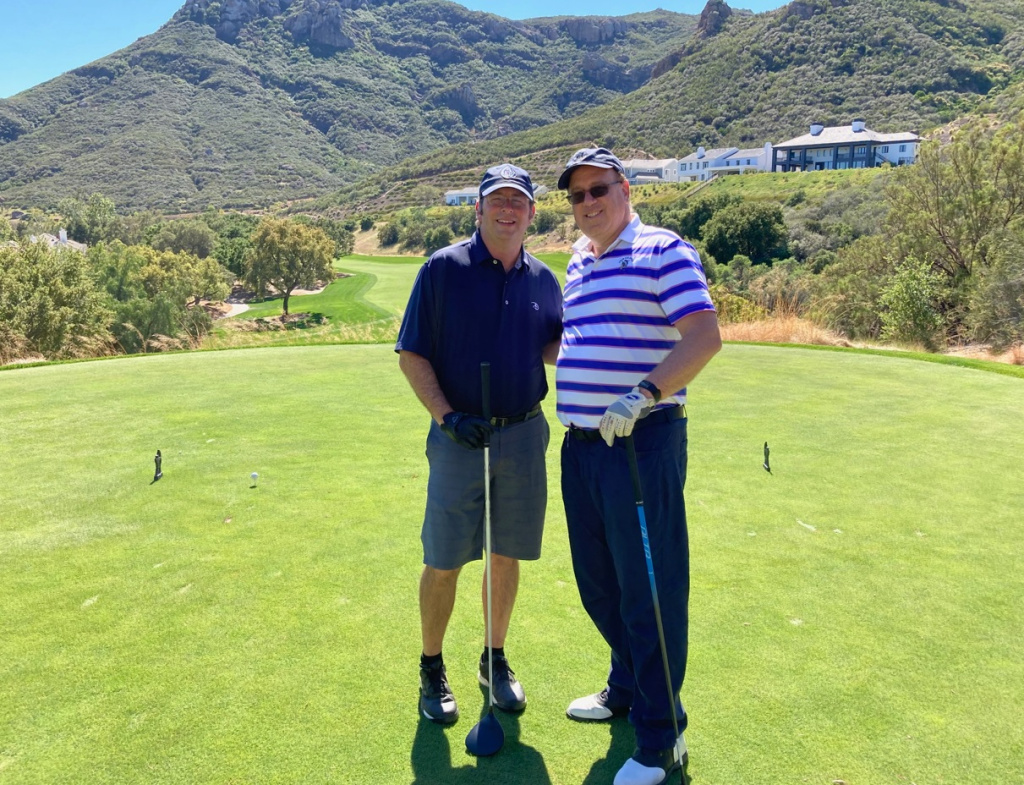How did you get there? Jon Last

A real privilege to sit down with Jon Last who is the President of boutique full service agency, Sports & Leisure Research Group, a firm he started 16 years ago after serving as Vice President of Corporate Marketing & Research for Golf Digest Publications. Earlier in his career, he headed up consumer marketing for the PGA of America and a leading cruise line. Last is a former national president of the Insights Association (MRA) and a former President of Market Research Institute International, where he currently serves as Marketing Chair. He is a magna cum laude graduate of Tufts University with an MBA in strategic management and marketing from The Wharton School of the University of Pennsylvania. He is a frequent speaker at golf, sports, travel and research industry conferences, authors a monthly column for Media Post’s Marketing: Sports and hosts “Driver$” the leading golf industry podcast on The First Call. He is a past recipient of the MRA’s Rising Star Award and Award of Excellence and has been honored by Golf, Inc. Magazine as both one of the most innovative people in golf and one of 2024’s top industry advisors.
Jon, great to have the opportunity to hear your story. So, first off, how did you get into the industry, and take us through how you got to this point?
Like so many of us, market research actually found me. I remember writing a satirical column about the Wharton MBA life while I was in grad school, that was all about keeping things in perspective despite the crazy pressure of school. I had stumbled upon some syndicated data that showed the huge audience advantage that some Soap Opera magazine had over a business publication, and I realized how siloed people could be. It fuelled my curiosity to understand what made customers tick. For me research was the pursuit of unadulterated truth, and it unlocked that reality of perspective that I needed as I stepped into my first post MBA job in marketing at the PGA, where it was so easy to think that every golfer was all about competition, which was wrong.
Research was the spoke in the wheel that dictated marketing strategy, and everyone else was so afraid of it. So, I embraced it and made it part of my department. It followed me into future corporate marketing roles. It took a really long time before I realized that my career path on the corporate side was unique. I was always a marketer that also oversaw research and I got hooked on it. When I got to Conde Nast and we were creating The Golf Digest Companies, I was charged with building our brand, and I recognized that rather than selling advertising or space, we were really selling access to an audience. Research was a perfect gateway to that, and we vertically integrated and built out that capability to service our clients. Eight years in, I realized that in some ways we were still being held back, so my early midlife crisis was to roll that business unit into the stand alone company that is today’s Sports and Leisure Research Group. Today, I consider my company to be a 16 year old start-up.

Why should anyone consider a career in market research, data and insights?
It’s a perfect career for someone who is curious; who wants to keep learning and who enjoys synthesizing ideas and telling stories through facts. Market research is also dynamic, because no two projects are ever the same. So, I guess for someone that was both creative and analytical it was a brilliant confluence of things that I enjoy. I’ve often used the metaphor that MR is like how a drunk uses a lamp post…it can be for support or illumination. The best research does both. It enables someone to occupy a unique strategic space in organizations or with clients because you are delivering truth, but if you are also really good at framing that truth in ways that can grow a business, you step beyond the role of data dumper and into the role of a trusted and persuasive confidante that can back things up in compelling ways. That’s really powerful and it still excites me when a study can do that.

Career paths are rarely without challenges. Can you share an honest moment from your career when things didn’t go quite according to plan, but the lessons remain with you to this day?
I was presenting a study to the CEO of a cruise line. He was a brilliant and successful entrepreneur who had always been surrounded by validators. I went through our findings and our implications, and he looked sternly at me and said something to the effect of, “That was beautifully articulated, well thought out and thorough, but it’s wrong! I refuse to believe it.” It was one of those few moments where I had to collect myself to come up with the right response. I refused to back down from what the data was telling us, but I was thankfully mindful enough to back up, see the forest through the trees and put myself in his position to draw out ways that the findings could still support his broader strategy. He appreciated that, realized that he could still be “the smartest man in the room” but now have another smart voice behind him. I learned about knowing your audience, and knowing how your work was intended to be used, and that helped me to become less of a threat and more of a trusted advisor. In the sports and travel verticals that we work in, it’s an incredibly important skill to have, particularly with some of the outsized egos that you must become invaluable to.

What two things should junior researchers focus on as they progress in their careers?
The first thing I’d suggest is to invest the time necessary to learn about the business or businesses you serve. Understand where insights fit and how you can make the people above you better. Put yourself in their shoes and do everything you can to earn their trust and confidence. Related to the above, is to take on the attitude that you own your business…not the company per se, but the area that you are responsible for. That’s a nuanced way of saying go the extra mile, because if you do, you will run circles around most others who are just trying to collect a pay check.
Do you have any advice for our sector?
I love innovation, but I’m at the point in my career where I’ve seen enough to get really skeptical about people that are constantly trying to disrupt research and find the shiniest and newest toys. I’ve always been client focused rather than process focused because at the end of the day, good research is about uncovering insights with the right questions or queries from the right people and using the proper context to interpret it correctly. That will never change, and it’s why I often quip that the only difference between a great research study and the work of a large global management consulting engagement should be about $1mm in cost. Researchers who hone in on that don’t need to worry about A.I. taking their jobs or eating their lunch. Get close to a client or boss’ business, service the heck out of them and help make them famous in their organizations. It will make you famous in your organization, also.

And do you have anyone who has helped your career so far that you’d like to acknowledge and say thanks or give a shout out to?
There are so many, and several weren’t researchers. Joe Steranka and the late Paul Bogin at the PGA were great mentors and supporters of what I wanted to do. They taught me the things about business that you couldn’t learn in grad school or in a book, and I’m eternally grateful. Mitchell Fox at Conde Nast/Golf Digest was another. He constantly challenged me to be more than I thought that I could be and gave me the wings to fly to places that I never expected I could go. In the research industry, I’ve admired and learned from people like Michael Mermelstein, Peter Van Brunt, Steve Schlesinger, Ed Sugar, Bill Matlack, Simon Chadwick, Merill Dubrow, the late Jamie Boyer and the late Carla Lindemann. More recently, I’ve had the pleasure to learn and work closely with visionaries like Don Marek, Stephen Kraus, Ed Keller, Jim Whaley, Jeffrey Henning and Dan Fleetwood. And of course, the wind beneath my wings will always be my work family and my actual family. David Klein and I started a sports magazine as undergrads at Tufts and we still work together, today. Rob Rees has been reading my mind and turning my ideas into graphical masterpieces for the past 25 years. Loyalty remains a big thing to me.